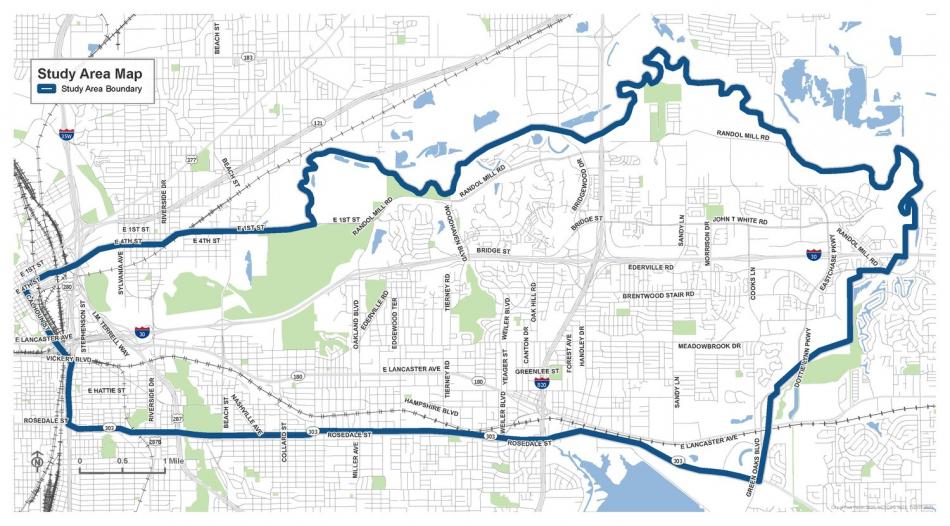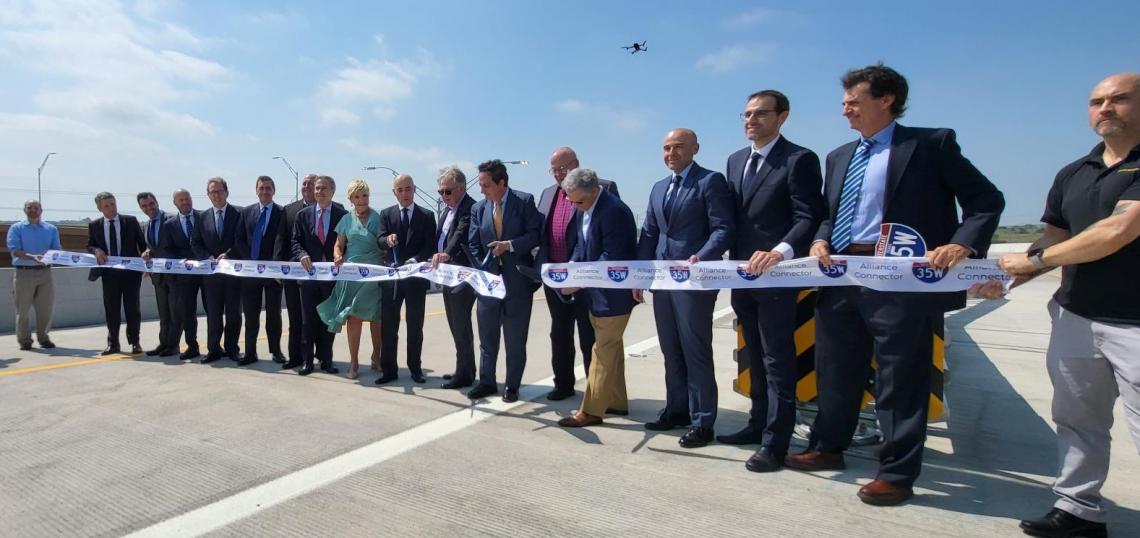At the end of Q2, 2023, Fort Worth announced both a $20mm grant for reconstruction of the East Lancaster Avenue Corridor and the successful opening of the North Tarrant Express (NTE) 35 W Alliance Connector Segment of I-35. Both the grant for future investment and the opening of the 6.7 mile I-35 section reflect the intense growth the city has seen in the past few years.
The NTE 35W project represents the fruits of more than $1bn in public-private partnership investments, involving governments on the regional, state, and federal levels. The highway investment will help the all-important Alliance area among others. Fort Worth listed the following benefits:
- The Alliance Connector Segment extends the managed lane corridor to the north side of Alliance Airport at Eagle Parkway.
- The project includes reconstructed main highway lanes, expanded frontage roads and the addition of two managed lanes in each direction.
- Connecting downtown Fort Worth and the Alliance development into Denton County, this segment helps create a safer, faster and more reliable movement of people, goods and services.
Former Tarrant County Judge Glen Whitley noted the importance of planning infrastructure proactively rather than reactively moving to reduce congestion once it is already an issue. Alan Baylock, Fort Worth District 10 Councilmember, spoke to the importance of the project:
This is a huge deal for the over 90,000 residents — and counting — that live in north Fort Worth. I ran on a platform of making our city a better place to live, work and play, and improved infrastructure and roads are two of my top priorities. I'm thrilled to see this facilitate faster, safer travel between Alliance and downtown Fort Worth, both of which are significant economic engines for our city and our region.
 The East Lancaster Avenue reconstruction is part of the greater Eastside Transportation PlanSource: City of Fort Worth
The East Lancaster Avenue reconstruction is part of the greater Eastside Transportation PlanSource: City of Fort Worth
The City also announced $20mm of federal grants for the reconstruction of the East Lancaster Avenue corridor. The grants were made out to the City of Fort Worth Transportation & Public Works Department in partnership with the Texas Department of Transportation (TxDOT) and the North Central Texas Council of Governments (NCTCOG).
The grant is considered a "Rebuilding American Infrastructure with Sustainability and Equity" (RAISE) grant via the "Infrastructure Investment and Jobs Act" (Bipartisan Infrastructure Law). The federal government has a truly special talent when it comes to vague, wordy names with catchy acronyms (and calling a 228-206 House vote "bipartisan"). Fort Worth was one of 162 locations to receive federal funds for community-led infrastructure projects. Fort Worth Mayor Mattie Parker spoke about the funding:
As the fastest growing big city in the country, it is vital that we champion dynamic and innovative transportation projects. I am thrilled to see this federal grant opportunity come through to advance a needed next-generation mobility investment that will pay dividends into building out a more connected, accessible and economically thriving East Lancaster area.
The grant should support high-capacity transit, dedicated bike and pedestrian paths, and advanced tech including lighting. The purpose is to support accessibility to proper jobs in the area. Kelly Porter of the Fort Worth Transportation & Public Works department noted the analytical approach taken in planning:
This funding commitment shows that data-driven planning, project development and partnerships with local, regional and state agencies are critical to demonstrating that this is a project of local and national significance.
Investors should take note of Fort Worth, if they haven't already. The City makes up two thirds of The Metroplex's DFW initialism but is sometimes overshadowed by Dallas. As The Metroplex continues to sprawl, Fort Worth's central location and industrial significance offer attractive opportunities, especially as the local government pushes to maximize its capacity for growth through infrastructure investments such as the I-35 corridor and East Lancaster reconstruction.






